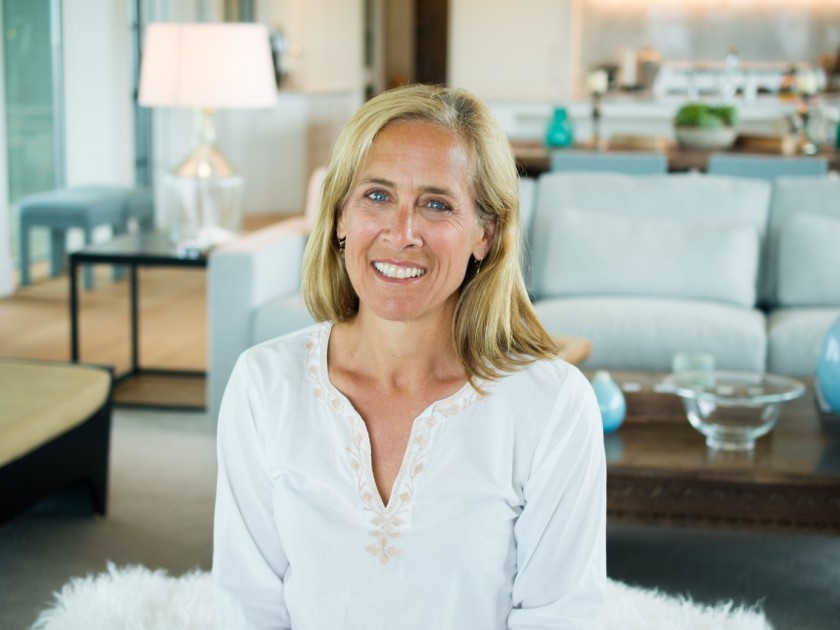
Courtesy of the author
My novel, The Nine, will be published on August 20, and as with my debut, Eden, I took inspiration from the Torah in writing it — not in literal terms, but using our sacred stories as metaphor. I don’t write in an ancient setting, but in a modern one. I am a believer that the themes in our ancient text continue to repeat themselves to this day, and in that I find some comfort, as well as resignation, toward what it means to be human.
Judaism provides a beautiful structure for continued learning and study of text. I’ve participated in many classes at Temple Israel Boston, including Modern Midrash with Rabbi Elaine Zecher. Not only do the students around the table discuss the many stories in the Tanakh, we point out what’s missing; often times the gaps and voids relate to the woman’s point of view.
One question that really reared its head for me was regarding the story of Hannah. She was barren and wanted a child terribly. When she went to the temple, she prayed with such fervor that the priest assumed she was drunk. She eventually bore a son and named him Samuel, meaning “I asked the Lord for him.” When she was praying to God, however, she vowed that once her son was weaned she would turn him over to the priest at the temple.
We point out what’s missing; often times the gaps and voids relate to the woman’s point of view.
I was consumed by what Hannah’s emotions must have been during this period, having wanted a child so badly and only to hold him for such a short period of time. As she had promised God she turned her son over, to the very priest who rebuked her — to me it seemed like the ultimate sacrifice. Perhaps this story struck me so because I studied it at a time when I was also turning my own son over to the world. He was fourteen, but still, in a modern context fourteen is just barely weaned! I was turning this son over not to a temple, but to an academy; not to a priest, but to a headmaster. The institution might’ve been different, but I was putting my trust in a person, a man, an authority figure, and I had to take a lot on faith.
I also thought about Hannah in relation to all women, who are ultimately valued in terms of fertility, their ability to bear children, and eventually by how righteous their children turn out to be. I thought about Hannah as an early portrayal of a mother who had to say goodbye to her son after what is inevitably too short a period of time and is nevertheless judged by her son’s actions.
I took it one step further outside the Midrash class. I turned her into a contemporary fictional character who was a well-meaning, hard-working woman, from a modest background, who overcame infertility and gave birth to a son. She makes him her career. She has great plans, intending to launch him toward even greater endeavors. You might call her a helicopter mom, but she’s not a bad person — as that connotation often invokes. She is just very determined that things will go a certain way. She is a believer in hard work, study, and earnestness and consequently being rewarded for those traits.
You might call her a helicopter mom, but she’s not a bad person — as that connotation often invokes. She is just very determined that things will go a certain way.
When her son arrives at the revered institution, he gets caught up in a whole new world. She is under the impression he’s going to live out her Ivy League hopes and dreams, but he gets wrapped up in a secret society and a fast moving crowd. He uncovers a crime, and is more concerned with doing the right thing and solving the mystery than fulfilling his mother’s collegiate aspirations.
I really enjoyed writing this coming of age, campus novel, with a strong maternal point of view. It can be frustrating to read Hannah’s character, but in the end many readers have compassion for her and understand she only wants what’s best.
I want readers to learn Hannah’s lesson without having to make the same mistakes she did. It is said one can summarize the Torah while standing on one foot with the simple phrase, “Love thy Neighbor.” What Hannah learns at the end of The Nine is that all the parenting gospels that once lined her bookshelves could be summarized similarly — it all comes down to love. Love your child, but also love yourself. Don’t use a son or any child to fill your own emptiness. Parenting is over in a minute, just appreciate the miracle of their being.
Jeanne McWilliams Blasberg is an award-winning author and essayist. Her novel, The Nine, was honored with the 2019 Foreword Indies Gold Award in Thriller & Suspense, and the Gold Medal and Juror’s Choice in the 2019 National Indie Excellence Awards. She co-chairs the board of the Boston Book Festival and serves on the Executive Committee of Grub Street, one of the country’s preeminent creative writing centers. She splits her time between Park City, UT, and growing organic vegetables on her farm in Verona, WI.